Facebook is breaking data privacy laws in France, Belgium, and the Netherlands and faces investigations in Spain and the German city of Hamburg, privacy regulators from those respective areas announced today. French authorities also announced they were slapping Facebook with the maximum fine allowed under French privacy law, of €150,000 ($164,000). To put that in perspective, Facebook generated $27.6 billion in revenues last year.
Tagged with Privacy
A mother faces paying more than £20,000 in damages to a school governor in a landmark libel case over comments allegedly posted on her private Facebook page.
A spokesman for Ms Smith said: “The message which prompted the case was only meant to be sent to a close friend. However, it ended up being posted to all her friends — clearly showing the potential pitfalls of Facebook.”
location location location
11.05.17
Many esafety messages are not fit for purpose, leave our young people with little guidance and reinforce their belief that we, as adults, are failing them.
We’ve looked at ‘Never share personal information’ previously and here we will consider again how this message is lazy, ill thought through and without value.
We have to share personal information if we are to function in our analogue face to face communities, and we teach our children from a very young age when and how to share personal information.
As parents we have always helped our children to have a healthy sense of mistrust and caution when it comes to sharing personal information. Indeed we spend a lot of time threatening children not to tell strangers in the street their names or addresses. As a boy my parents repeatedly told me that If I answered the home telephone I must never say ‘My mum and dad are not at home.’ Instead we were given strategies to withhold such information saying instead ’My mum isn’t available at present, can I take a message?’
There is also research and evidence to suggest that increasing numbers of adults meet their partners online via social media and dating sites. If this is the case then what are we doing as parents, carers and teachers to prepare our children for online relationships?
It is not clear why so many adults fail to see that they must spend time and effort helping their children to learn new digital citizenship skills and strategies to keep safe. This is a process that should take place every day, at every opportunity and not to be left to one esafety lesson a year at school.
We need to help our children develop the skills and experience to understand the costs and benefits of sharing elements of our, and other people’s personal information online.
If we shop online then we need to share our address and our payment and bank details. Clearly for many of us, the risks are outweighed by the benefits of goods and services delivered directly to our physical or digital location. It is also a useful point to debate and consider whether we should share our personal preferences and shopping habits with our major supermarkets. I currently take the view that I’m comfortable with Sainsbury’s knowing what I purchase if this means I receive more focused and appropriate advertising and promotions. I take a less positive view of companies further sharing my personal information to third party and unrelated companies. Nevertheless, anything that allows me to be a more effective purchaser of the things I need can be seen as a benefit with a cost I’m prepared to bear.. at present.
At the time of writing, many in my social networks are enjoying holidays and this leads to oversharing of actual and imminent location or ourselves and others. It is understandable to want to share good news;
‘I’m going on holiday to Spain!’
‘Can’t wait!’
‘2 weeks!’
‘3 more sleeps..’
And ofcourse once we’re on our holidays we post beautiful pictures of views, food and our loved ones;
‘Love this place.’
‘last night in paradise’
‘View from my plane seat of rainy Heathrow, England’
When I work with children and young people I ask; ‘Where do burglars live?’ and we eventually conclude that somebody in our social network must inevitably know somebody who knows somebody who knows somebody who will burglar our home while we are on holiday. Logic dictates that posting personal information about location will increase the likelihood that we will be victims of crime.
It’s also worth noting that there is increasing evidence that insurance companies will not compensate our losses if they can prove that we broadcast when we would be away from our homes via social media..
The idea that we avoid ‘broadcasting’ when our homes would be unoccupied is not a new one. For many of us who were around pre social media and internet, we employed strategies including, not cancelling deliveries of bread and milk, not telling the (never to be trusted and much maligned taxi driver) our destination or length of stay and the cunning, if pointless, partial closing of curtains.
In this digital age surely each of us must be more guarded in the way we share not only our own personal information and details, but those too of our family, friends and contacts? It’s not difficult, it just takes a little more care and a little more effort.. oh, and not blaming young people for the mistakes that we as adults model every day.
There are some interesting points for discussion here including; 'the toy not only listens to your child, but then records everything and sends it to a third party as a text file for analysis. A third party that, coincidentally, offers a voice analysis service to law enforcement and the military.'
Organisations including the Food Standards Agency and the Department for Work and Pensions will be able to see UK citizen's entire internet browsing history in weeks.
The Investigatory Powers Bill, which was all but passed into law this week, forces internet providers to keep a full list of Internet Connection Records (ICRs) for a year, and make them available to the government if it asks. Those ICRs effectively serve as a full list of every website that people have visited, not collecting which specific pages are visited or what's done on them but serving as a full list of every site that someone has visited and when.
France and Germany are to pressure the EU to let them break one of the most central technologies of the internet.
The two countries plan to ask the European Commission to force technology companies to limit the encryption used to keep messages private.


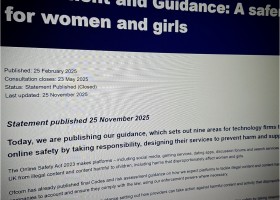

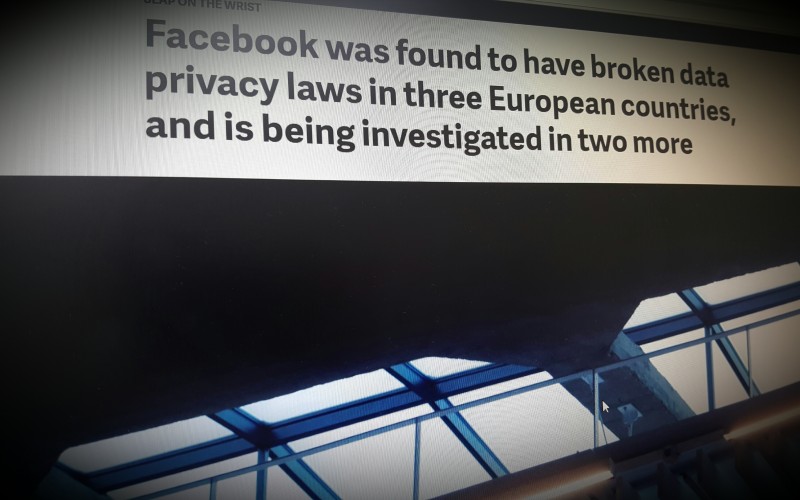
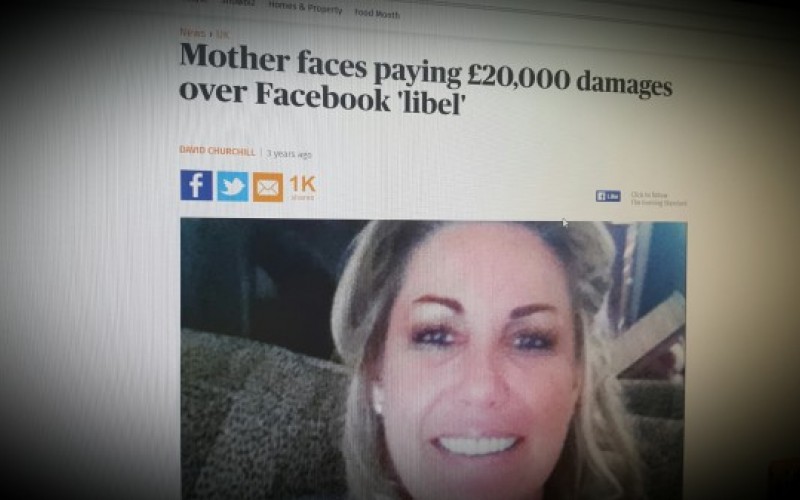
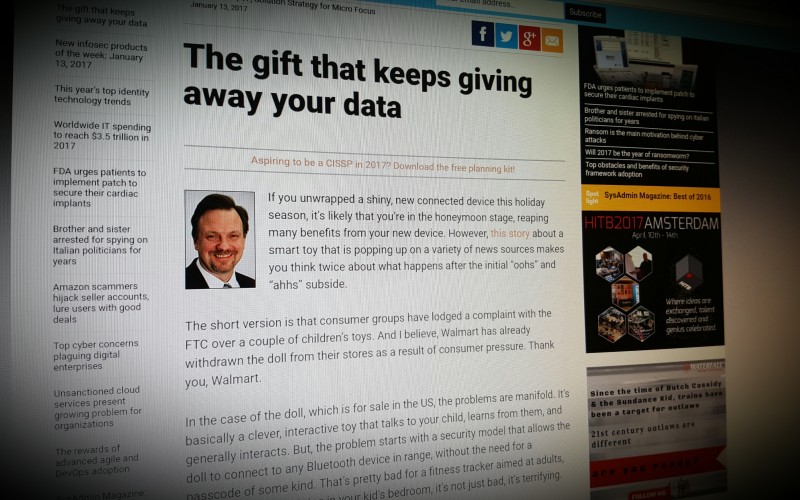
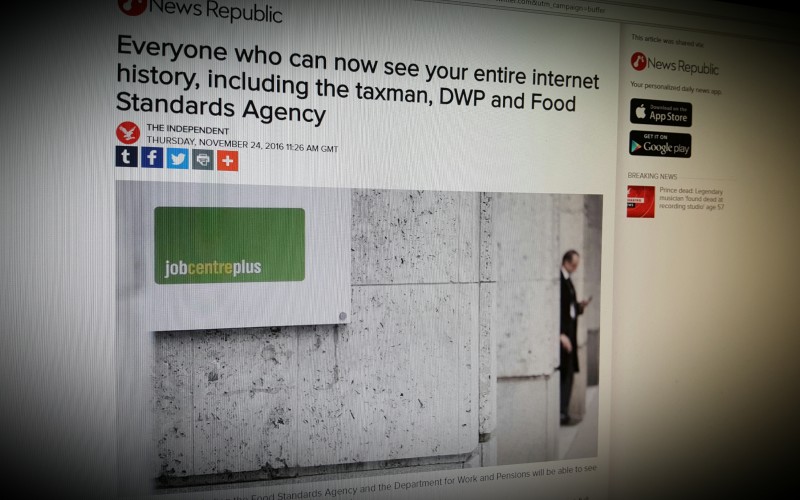
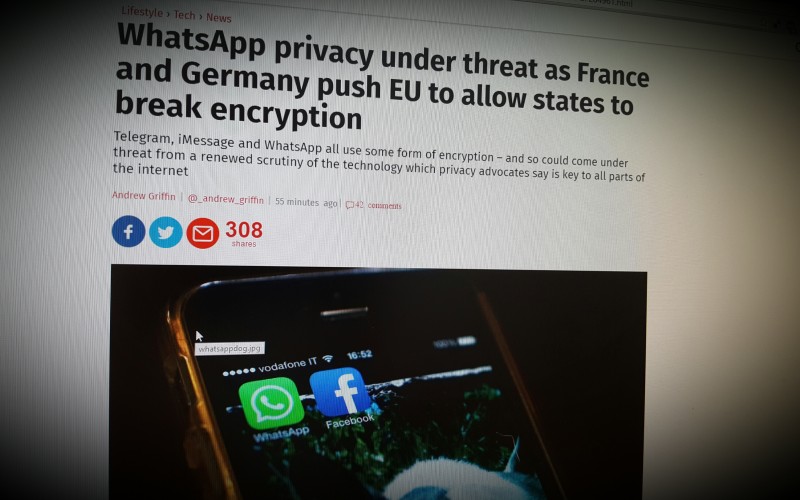
Comments
make a comment